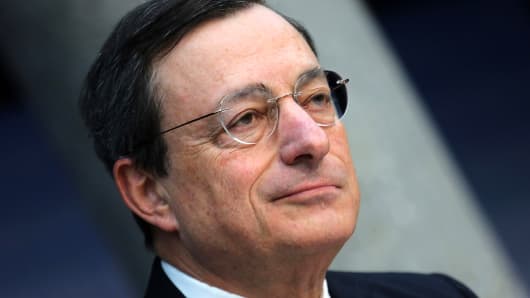For the European Central Bank (ECB), the success of the OMT bond-buying program outlined a year ago lies in the fact that, like the nuclear deterrent during the Cold War, it has not been used – and, indeed, may never be.
Nonetheless, the grandly-named Outright Monetary Transactions plan has generated a steep decline in bond yields in problem countries and snuffed out talk, for the moment at least, that the euro zone could break up.
ECB president Mario Draghi's statement in June – "It's really very hard not to state that OMT has been probably the most successful monetary policy measure undertaken in recent time[s]" – would not win him any prizes for modesty, but has so far been justified by events.
(Read Op Ed: One year on: Did Draghi's promise solve anything?)
Draghi, who became president of the ECB on November 2011, has shown himself to be a more focused and active policy-maker than his predecessor, Jean-Claude Trichet, who used to pepper speeches with historical references and took a far too forgiving line on the deep, underlying problems building up in the economic and monetary union (EMU) under his eight year stewardship.
In one area of intellectual leadership, Draghi's legacy may prove long-lasting. In a cautious way, he has opened up a new debate on the essential reasons behind EMU's difficulties that surfaced after the trans-Atlantic financial crisis of 2007-08. This is a debate that still has a long way to run and will prove to be of more than mere academic significance.
Draghi has to tread carefully. As a representative of Italy - one of the countries in the euro with the largest government debt-to-GDP (gross domestic product) ratio - Draghi has to show implacable neutrality between debtors and creditors, and must, if anything, lean in the direction of protecting creditors' interest.




